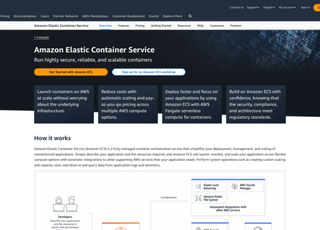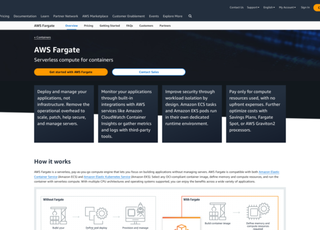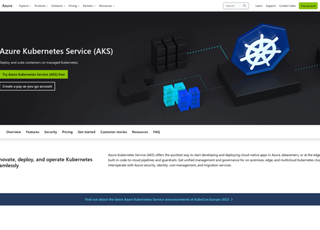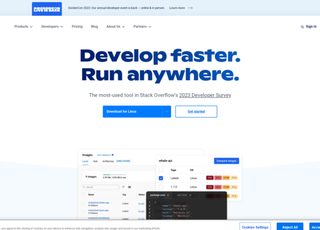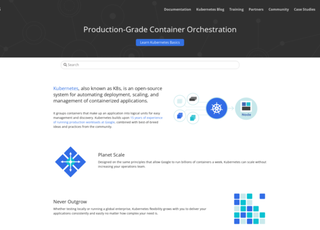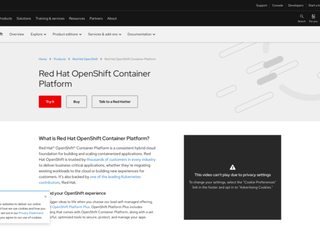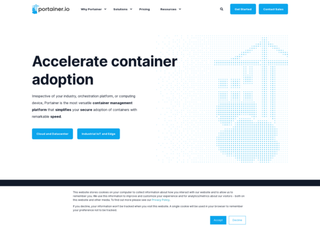Google Kubernetes Engine (GKE)
https://cloud.google.com/kubernetes-engineGoogle Kubernetes Engine (GKE)
Google Kubernetes Engine (GKE) is a powerful and scalable managed service provided by Google Cloud that simplifies the deployment, management, and scaling of containerized applications using Google infrastructure.
Detailed breakdown
Kubernetes-based
GKE is built on Kubernetes, an open-source platform designed to automate deploying, scaling, and operating application containers. Kubernetes orchestrates container deployment, scaling, and management, making it easier to handle containerized applications in different environments.
Managed Environment
GKE offers a managed environment, meaning that Google handles much of the complexity of managing a Kubernetes cluster. This includes tasks like upgrades, patch management, and ensuring high availability.
Scalability
One of the key features of GKE is its ability to automatically scale the number of nodes (machines) in a cluster. This auto-scaling feature helps in efficiently managing the resources as per the workload requirements.
Integration with Google Cloud
GKE is deeply integrated with Google Cloud Platform (GCP) services, providing seamless integration with Google's cloud storage, networking, and security services. This makes it easier to build and deploy cloud-native applications.
Security
GKE provides robust security features, including encrypted data storage and network policies for pods. It also integrates with Google’s Cloud Identity and Access Management (IAM) for fine-grained access control.
Load Balancing
GKE supports both internal and external load balancing, allowing you to distribute traffic across a pool of instances in a Google Cloud region or globally.
High Availability
GKE offers high availability options for your clusters, ensuring that your applications remain available and accessible, even if some parts of the infrastructure fail.
Logging and Monitoring
Integration with Cloud Operations for GKE (formerly Stackdriver) provides powerful monitoring, logging, and diagnostics. This enables you to gain insights into the performance and health of your applications and infrastructure.
Flexibility and Openness
While GKE provides a managed environment, it still offers flexibility and openness, meaning you can customize many aspects of your Kubernetes clusters. It supports various open-source tools and plugins, and you can run it in conjunction with other cloud providers or in on-premises data centers.
Cost-Effective
GKE can be cost-effective, particularly for businesses that need to scale their operations dynamically. Its pricing model allows you to pay only for the compute resources you use.
Environment Options
GKE provides multiple environment options for different needs. There's the standard GKE environment, which offers a balance of control and automation. Then there's GKE Autopilot, which is a more hands-off approach where Google automatically manages and optimizes nodes.
Networking Features
GKE offers advanced networking features, including the ability to configure private clusters, set up network policies for pod-to-pod communication, and use Google's global load balancer for handling HTTP(S) traffic.
Storage Solutions
GKE seamlessly integrates with Google Cloud's storage solutions, such as Persistent Disks and Cloud Storage, allowing for stateful applications to be easily managed and scaled.
Multi-Cluster Management
With GKE, you can manage multiple Kubernetes clusters across different environments, including various cloud providers or on-premises, through a single pane of glass. This is particularly useful for large-scale or multi-national operations.
Customizability and Extensibility
While GKE provides a managed service, it doesn't lock you into a rigid environment. You can customize cluster configurations, including the choice of operating system for nodes, network settings, and access to Kubernetes master.
Continuous Development and Deployment
GKE integrates well with cloud-based continuous integration and continuous deployment (CI/CD) tools, making it easier to automate the deployment of applications.
Compliance and Regulations
GKE is compliant with major standards and regulations, ensuring that businesses can meet their compliance requirements. This includes ISO certifications, SOC reports, and HIPAA compliance, among others.
Community and Support
Being based on Kubernetes, GKE benefits from a large community of developers and users. Google provides professional support for GKE, and there is also an extensive community-driven support system.
Innovative Features
GKE often introduces cutting-edge features in the world of Kubernetes, like advanced autoscaling, machine learning integrations, and the use of Google's global network infrastructure for optimized performance.
Hybrid and Multi-Cloud Capabilities
With Anthos on GKE, businesses can run their applications not only in the cloud but also in hybrid environments, providing flexibility and facilitating multi-cloud strategies.
GKE stands out as a versatile, efficient, and powerful platform for managing Kubernetes at scale, offering a blend of automation, flexibility, and integration with the rich ecosystem of Google Cloud services. Whether for small projects or enterprise-scale operations, GKE provides a robust foundation for building and running containerized applications.





















